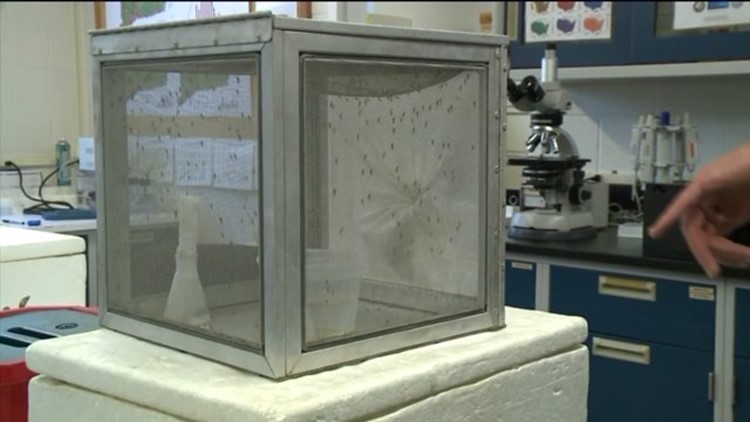WEST HAVEN - The mosquito-borne and potentially fatal West Nile Virus is appearing with more frequency this summer in Connecticut, especially within the last week.
At the end of Thill Street in West Haven sits a marshy area--and the still water attracts those pesky bugs. Now, it is the ninth community in the state to have had West Nile infected mosquitoes trapped by the states mosquito management program.
The nearby New Haven Agricultural Experiment Station is part of the collaborative effort, which includes the state Department of Energy and Environmental Protection.
The warm weather, combined with dry conditions, have created an environment very conducive to mosquito breeding, especially in storm drains.
"If the water is allowed to kind of stagnate and if there isn't like these large torrential rain falls that'll flush the storm drains out," said Dr. Philip Alexander, of the Connecticut Experimental Agriculture Station.
The hot weather also accelerates the reproduction time of the mosquitoes, he said.
"Most people that get infected don't go on to develop the severe disease. They just have mild flu like symptoms."
Since first was discovered in Connecticut 17 years ago, West Nile Virus has killed three humans and infected 130 total, but none so far this year.
The New Haven Agricultural Experiment Station collects and studies the contents of its 91 traps from 72 communities on a rotating basis.
"We don't test every individual mosquito because there are just too many coming in our traps. So, we group them into pools of up to 50 mosquitoes pool," said Alexander.
Connecticut features 50 mosquito species, including the Asian Tiger, which transmits the Zika virus. So far, Zika has not made it north of Miami, according to Alexander.
The best advice: wear long sleeves an long pants, especially when outdoors, and especially in the early morning and early evening hours. People should spray any exposed body parts with an insect repellent that features DEET.
Mosquito traps are set Monday through Thursday nights at each site every 10 days, on a rotating basis. Mosquitoes are grouped (pooled) for testing according to species, collection site, and date. Positive findings are reported to local health departments and on the CAES website.
For information on West Nile and other mosquito-borne viruses, and how to prevent mosquito bites, visit the Connecticut Mosquito Management Program website.



